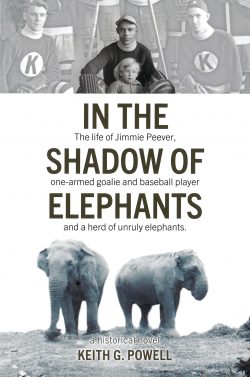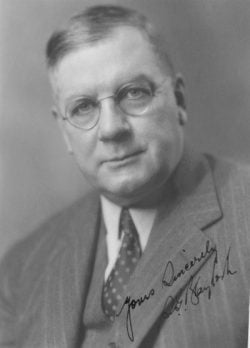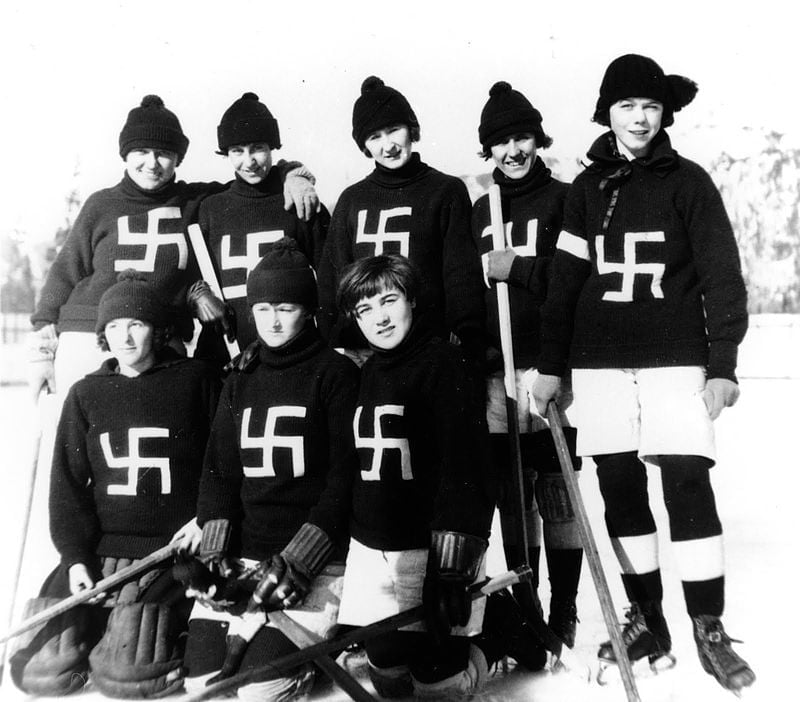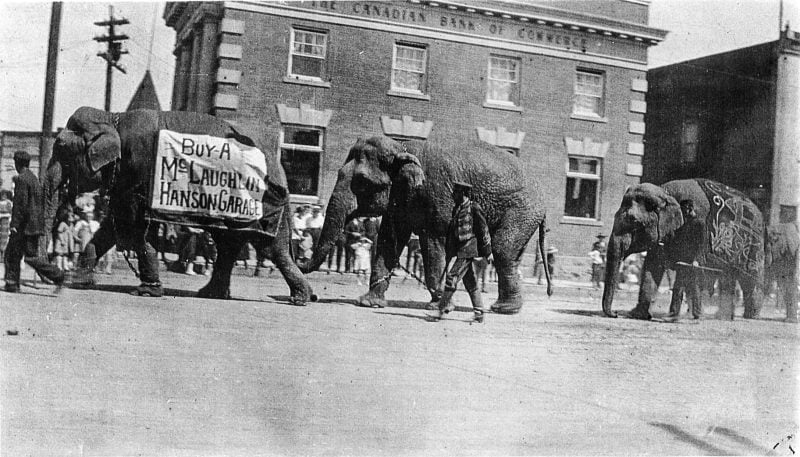#839 Wild elephants couldn’t drag me…
In the Shadow of Elephants: The life of Jimmie Peever, One-armed Goalie and Baseball Player and a Herd of Unruly Elephants
by Keith G. Powell
Cranbrook: Wild Horse Creek Press, 2019
$21.95 / 9780981214641
Reviewed by Ron Verzuh
*
 Meet Jimmie Peever.
Meet Jimmie Peever.
A novel about a one-armed goalie and baseball pitcher doubles as an anecdotal history of the Kootenays.
Billed as a historical novel, Kootenay writer-publisher Keith Powell has crafted a multi-tasking book that doubles as a local history and triples as a photographic tour of the pioneer days of the East and West Kootenays. The challenge, and the fun, is to fit the history bits into the fictional ones.
The story of Jimmie Peever, “the one-armed goalie and baseball player” of the subtitle, is not a straight flowing narrative. Instead, Jimmie provides a storyline around which Powell tucks various historical events drawn from Kootenay historians like Elsie G. Turnbull. (Yours truly even makes a modest appearance.)


The sporting events occur from 1924 to 1926, but along the way Powell provides both real and fictional personages and occurrences. Several of the anecdotes involve Selwyn G. Blaylock, the eventual president of the Consolidated Mining and Smelting Company of Canada (CM&S).
Powell invents Jimmie’s role as Blaylock’s chauffeur, for example, but he provides real historical information on Blaylock’s many inventive accomplishments at the Trail lead and zinc smelter. For instance, there is a chapter on the smelter’s role in creating the atomic bomb. Another tells of how Blaylock solved a pollution problem with the development of profitable Elephant Brand fertilizer.
He strays from historical fact with the invention of a baseball game in the East Kootenay starring none other than Babe Ruth. Powell tells us that he made up the famous exhibition game in Cranbrook, but he found no record of the Babe ever making it the Kootenays.
Other sports champions, like National Hockey League goaltender Tiny Thompson, are celebrated in substantial biographical sketches. Ted Nagle, too, is well remembered as the coach of the Kimberly Dynamiters, winners of the 1937 world amateur hockey cup. We meet an all-women hockey team that wears jerseys displaying a swastika and an all-Japanese baseball team called the Vancouver Asahi. Nor does Powell fail to mention the great hockey rivalry between the Kimberly team and the Trail Smoke Eaters, cup winners in 1939 and again in 1961.


Straddling accounts of events and individuals are brief news items recalling a hockey or baseball game in which Jimmie features as the star goalie or pitcher. But the historical record is “somewhat sparse” on his main character, notes Powell, allowing him to create a likeable Forrest Gump-style figure.
Jimmie is a small-town boy who has grown up with a social conscience and an awareness of the prejudices that exist in the Kootenays. Powell shows this partly through a real historical figure named Pielle or “Indian Pete.” Jimmie explains to his friend Charlie Buckbone that Pielle discovered ore at Eugene Mines and was handsomely rewarded by the CM&S Company.
In other episodes involving interned Japanese families, Jimmy is seen treating them with respect and coming to their aid. The Doukhobors, however, receive less attention from Jimmie. The controversial Russian religious sect appears as a historical item culminating in the mysterious bombing death of Peter “Lordly” Verigin, the sect’s spiritual leader.
Then there were those elephants. In August 1926, notes Powell, a herd of elephants, performers in the Sells-Floto travelling circus, went on the rampage first in Alberta and then in Cranbrook. Powell mixes fact and fiction to tell how the herd was eventually apprehended. He weaves Jimmie into the story and inserts the actual history using clippings from various newspapers.

Not all readers will like Powell’s style or find it easy to follow. He leaps from one historical anecdote to a fictional account that could confuse some readers regarding what is history and what is fiction. Others will enjoy cherry-picking their way through the many fascinating events that make Kootenay history special.
“I believe the job of a writer is to tell an appealing story,” Powell writes. “In the case of a historical novel, it is to tell a story in a way that is true to the era in which it takes place.” Powell has accomplished part of his task and, as a Kootenay kid myself, I enjoyed reviewing some of the history I grew up hearing about.
In the Shadow of Elephants is an honourable effort with plenty to keep readers busy, but those looking for a reading experience that seamlessly merges historical fact and fiction in a smooth-flowing narrative will not find it here.

*

Ron Verzuh is a writer, historian, and documentary filmmaker who currently lives in Oregon. He has written historical accounts of Kootenay history that have appeared in several historical journals in Canada and the United States.
*
The Ormsby Review. More Books. More Reviews. More Often.
Publisher and Editor: Richard Mackie
The Ormsby Review is a journal service for in-depth coverage of B.C. books and authors. The Advisory Board consists of Jean Barman, Robin Fisher, Cole Harris, Wade Davis, Hugh Johnston, Patricia Roy, David Stouck, and Graeme Wynn. Scholarly Patron: SFU Graduate Liberal Studies. Honorary Patron: Yosef Wosk. Provincial Government Patron since September 2018: Creative BC
“Only connect.” – E.M. Forster
One comment on “#839 Wild elephants couldn’t drag me…”